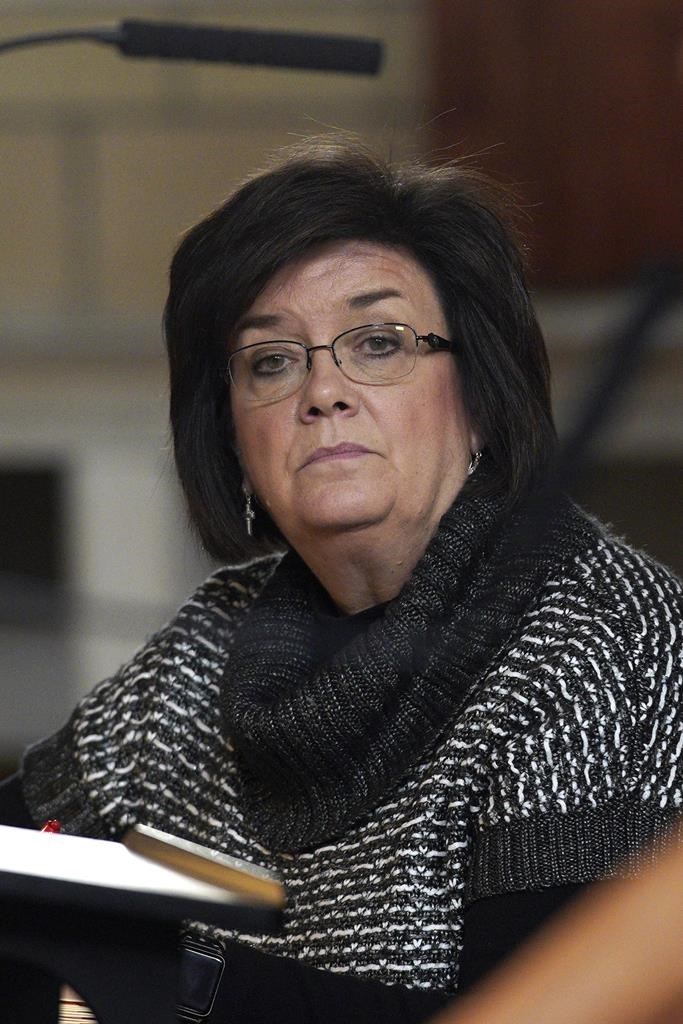LINCOLN, Neb. (AP) — A Nebraska lawmaker who sponsored a failed total abortion ban last year announced Wednesday that she will introduce a new bill this week that would ban abortion once cardiac activity can be detected in an embryo, which is generally around the sixth week of pregnancy.
State Sen. Joni Albrecht, of Thurston, announced at a news conference that she would introduce the bill Thursday or Friday. It will require an ultrasound to be performed before any abortion and would bar abortions if cardiac activity is detected. It will include exceptions for cases of rape, incest or to save the life of the mother.
“We heard the cry of the public last year,” Albrecht told The Associated Press. “Rape and incest was a big deal.”
The bill also will not include criminal penalties for women who receive abortions or doctors who perform them. Instead, it would subject doctors who perform abortions in violation of the measure to professional discipline, which could include losing their medical licenses. The bill also would not affect in vitro fertilization procedures, Albrecht said.
The American Civil Liberties Union of Nebraska immediately took aim at the proposal and said it is prepared to fight any such measure.
“For many Nebraskans in need of abortion care, this ban would have the exact same effect as a total ban because many people do not know they are pregnant at the point when this proposed extreme restriction would take effect,” said ACLU Nebraska legal and policy counsel Scout Richters.
A bevy of Republican-led states have enacted new abortion restrictions since the U.S. Supreme Court's overturned Roe v. Wade, which had guaranteed the right to abortion nationwide for nearly five decades.
“Abortion rights supporters need to know that it is time to speak out and show up like never before," Richters said. "We will do everything we can to stop this ban, including making sure our thousands of supporters get that message.”
If enacted, Nebraska would join several other states that have passed cardiac activity abortion bans, including Georgia, Iowa, Ohio, South Carolina and Tennessee. But Nebraska has recently struggled to enact tighter abortion restrictions despite its history of being a leader in abortion limits. In 2010, Nebraska became the first state to ban abortions after the 20th week of pregnancy, and the state outlawed a second-trimester abortion procedure in 2020 despite fervent protests from abortion rights supporters.
But the effort to pass a so-called trigger bill that would have automatically banned nearly all abortions — even those that resulted from rape and incest — as soon as Roe was overturned fell two votes short of the 33 it needed to overcome a filibuster. Then-Gov. Pete Ricketts — a Republican and outspoken abortion opponent — declined to call a special session after Roe was overturned.
Abortion rights proponents have acknowledged that the alliance behind last year's filibuster is on shaky ground. Democratic state Sen. Justin Wayne, of Omaha, is seen as a key swing vote who could give abortion rights opponents support on a bill that would be less restrictive than a total ban.
Wayne was absent from the legislative chamber when lawmakers voted on the ban last April. He did not immediately return a call Wednesday seeking comment on whether he would support Albrecht's latest abortion measure.
State Sen. Megan Hunt of Omaha, who has been a vocal proponent of abortion rights and helped lead the effort in the Legislature last year to block Albrecht's proposed ban, vowed to fight any effort to restrict abortion rights in the state. She introduced a constitutional amendment Wednesday to protect reproductive freedom and prohibit the state from taking action against that freedom.
Margery A. Beck, The Associated Press



